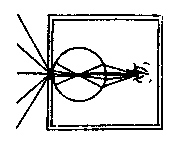 CHArt
CHArt  CHArt
CHArt Computers and the History of Art - 1999 Conference Paper Abstract
The paper is especially relevant to the following conference themes; resource discovery, including cataloguing, metadata and search techniques; digital resources in research; pedagogic implications of digital resources and electronic delivery.
This paper presents the first stage of an investigation which will take two years to complete. The next, empirical stage of the project will consist of a survey of at least 25 art historians, divided into five sub-disciplinary groups of roughly similar numbers when scaled to the UK Higher Education community, classical and medieval, renaissance to eighteenth century, modern art history, modern architecture and design, and film and photography. A paper questionnaire employing open-ended questions will be administered to a pilot group, enabling us to design a structure for the longer face to face interviews on which the final analysis will be based. The project is based in the Institute for Image Data Research at the University of Northumbria, and it is envisaged that the findings will contribute to the development of better content-based retrieval techniques for digital image resources.
This stage of the project is concerned with laying the philosophical and methodological foundations for an empirical study of a sample of the community of teachers and researchers in the subject. The paper investigates three propositions on which feedback from delegates is welcomed. The first is that the approach to art history, as to many disciplines, has been driven by the information providers' need to find uses for new technology, and is based on a limited model of the discipline. The second is that the discipline's core skills differ from those of the other humanities but that they have been only partially elaborated. Finally, the history of the discipline in the last thirty years has been one of rapid expansion and methodological development, both in terms of teaching and research.